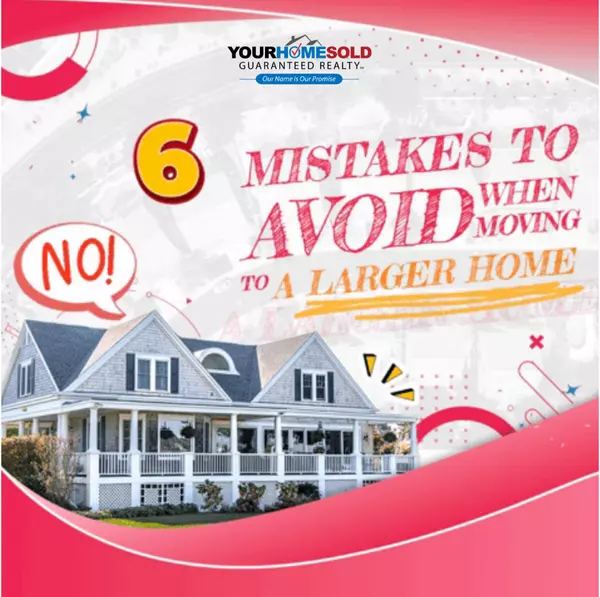

Beware! 13 Extra Costs
13 Extra Costs to be Aware of Before Buying a Home 13 Extra Costs Before Buying a Home Whether you’re looking to buy your first home, or trading up to a larger one, there are many costs — on top of the purchase price — that you must figure into your calculation of affordability. These extra fees, such as taxes and other additional costs, could surprise you with an unwanted financial nightmare on closing day if you’re not informed and prepared. Some of these costs are one-time fixed payments, while others represent an ongoing monthly or yearly commitment. Not all of these costs will apply in every situation, however it’s better to know about them ahead of time so you can budget properly. Remember, buying a home is a major milestone. Whether it’s your first, second or tenth home, there are many important details to address, during the process. The last thing you need are unbudgeted financial obligations cropping up hours before you take possession of your new home. Read through the following checklist to make sure you’re budgeting properly for your next move. 1. Appraisal Fee Your lending institution may request an appraisal of the property which would be your responsibility to pay for. Appraisals can vary in price from approximately $175 – $300. 2. Property Taxes Depending on your downpayment, your lending institution may decide to include your property taxes in your monthly mortgage payments. If your property taxes are not added to your monthly payments, your lending institution may require annual proof that your taxes have been paid. 3. Survey Fee When the home you purchase is a resale (vs a new home), your lending institution may ask for an updated property survey. The cost for this survey can vary between $700-$1,000. 4. Property Insurance Home insurance covers the replacement value of your home (structure and contents). Your lending institution will request proof that you are insured as it protects their investment on the loan. 5. Service Charges Any new utility that services your hook up, such as telephone or cable, may require an installation fee. 6. Legal Fees Even the simplest of home purchases should have a lawyer involved to review all paperwork. Shop around, as rates vary greatly depending on the complexity of the issues and the experience of the lawyer. 7. Mortgage Loan Insurance Fee Depending upon the equity in your home, some mortgages require mortgage loan insurance. This type of insurance will cost you between 0.5% – 3.5% of the total amount of the mortgage. Usually payments are made monthly in addition to your mortgage and tax payment. 8. Mortgage Brokers Fee A mortgage broker is entitled to charge you a fee in order to source a lender and organize the financing. However, it pays to shop around because many mortgage brokers will provide their services free to you by having the lending institution absorb the cost. 9. Moving Costs The cost for a professional mover can cost you in the range of:• $50-$100/hour for a van and 3 movers, and• 10-20% higher during peak demand seasons. 10. Maintenance Fees Condos charge monthly fees for common area maintenance such as groundskeeping and carpet cleaning in hallways. Costs will vary depending on the building. 11. Water Quality and Quality Certification If the home you purchased is serviced by a well, you should consider having your water checked by your local experts. Depending upon where you live, determines whether or not a fee is charged, to certify the quantity and quality of the water. 12. Local Improvements If the town you live in has made local improvements (such as the addition of sewers or sidewalks), this could impact a property’s taxes by thousands of dollars. 13. Land Transfer Tax This tax is applied whenever property changes hands and the amount that is applied can vary.
Read More

10 Questions to Ask Before You Hire an Agent
10 Questions to Ask Before You Hire an Agent 10 Things You Need to Know Before You Hire an Agent Not all real estate agents are the same. If you decide to seek the help of an agent when selling or buying your home, you need some good information before you make any moves. An agent can cost or save you thousands of dollars Picking an agent is one of those critical issues that can cost or save you thousands of dollars. There are very specific questions you should be asking to ensure that you get the best representation for your needs. Some agents may prefer that you don’t ask these questions, because the knowledge you’ll gain from their honest answers will give you a very good idea about what outcome you can expect from using this agent. And let’s face it - in real estate, as in life - not all things are created equal. Hiring a real estate agent is just like any hiring process - with you on the boss’s side of the desk. It’s critical that you make the right decision about who will handle what is probably the single largest financial investment you will ever make. 1. What makes you different? Why should I list my home with you? It’s a much tougher real estate market than it was a decade ago. What unique marketing plans and programs does this agent have in place to make sure that your home stands out favorably versus other competing homes? What things does this agent offer you that others don’t to help you sell your home in the least amount of time with the least amount of hassle and for the most amount of money? 2. What is your company’s track record and reputation in the market place? It may seem like everywhere you look, real estate agents are boasting about being #1 for this or that, or quoting you the number of homes they’ve sold. If you’re like many homeowners, you’ve probably become immune to much of this information. Afterall, you ask, “Why should I care about how many homes one agent sold over another. The only thing I care about is whether they can sell my home quickly for the most amount of money.” Well, because you want your home sold fast and for top dollar, you should be asking the agents you interview how many homes they have sold. I’m sure you will agree that success in real estate is selling homes. If one agent is selling a lot of homes where another is selling only a handful, ask yourself why this might be? What things are these two agents doing differently? You may be surprised to know that many agents sell fewer than 10 homes a year. This volume makes it difficult for them to do full impact marketing on your home, because they can’t raise the money it takes to afford the advertising and special programs to give your home a high profile. Also, at this low level, they probably can’t afford to hire an assistant, which means that they’re running around trying to do all the components of the job themselves, which means service may suffer. 3. What are your marketing plans for my home? How much money does this agent spend in advertising the homes s/he lists versus the other agents you are interviewing? In what media (newspaper, magazine, TV etc.) does this agent advertise? What does s/he know about the effectiveness of one medium over the other? 4. What has your company sold in my area? Agents should bring you a complete listing of both their own, and other comparable sales in your area. 5. Does your Broker control your advertising or do you? If your agent is not in control of their own advertising, then your home will be competing for advertising space not only with this agent’s other listings, but also with the listings of every other agent in the brokerage. 6. On average, when your listings sell, how close is the selling price to the asking price? This information is available from the Real Estate Board. Is this agent’s performance higher or lower than the board average? Their performance on this measurement will help you predict how high a price you will get for the sale of your home. 7. On average, how long does it take for your listings to sell? This information is also available from the Real Estate Board. Does this agent tend to sell faster or slower than the board average? Their performance on this measurement will help you predict how long your home will be on the market before it sells. 8. How many Buyers are you currently working with? Obviously, the more buyers your agent is working with, the better your chances are of selling your home quickly. It will also impact price because an agent with many buyers can set up an auction-like atmosphere where many buyers bid on your home at the same time. Ask them to describe the system they have for attracting buyers. 9. Do you have a reference list of clients I could contact? Ask to see this list, and then proceed to spot check some of the names. 10. What happens if I’m not happy with the job you are doing to get my home sold? Can I cancel my listing contract? Be wary of agents that lock you into a lengthy listing contract which they can get out of (by ceasing to effectively market your home) but you can’t. There are usually penalties and broker protection periods which safeguard the agent’s interests, but not yours. How confident is your agent in the service s/he will provide you? Will s/he allow you to cancel your contract without penalty if you’re not satisfied with the service provided? Evaluate each agent’s responses to these 10 questions carefully and objectively. Who will do the best job for you? These questions will help you decide.
Read More

6 Buyer Mistakes
6 Things You Must Know Before You Buy Mortgage Regulations Have Changed . . . Mortgage regulations have changed significantly over the last few years, making your options wider than ever. Subtle changes in the way you approach mortgage shopping, and even small differences in the way you structure your mortgage, can cost or save you literally thousands of dollars and years of expense. Get the Right Information Whether you are about to buy your first home, or are planning to make a move to your next home, it is critical that you inform yourself about the factors involved. Industry research has revealed that there are 6 common mistakes that most homebuyers make in mortgage shopping that can have a significant impact on the outcome of this critical negotiation. If handled correctly, these issues could result in a mortgage that will cost you less over a shorter period of time. 6 Things You Must Know Before Obtaining a Mortgage Before you commit your hard earned dollars to monthly mortgage payments, consider these 6 issues. Effective consideration of these important areas can make your payments work much harder for you. 1. You can, and should, get preapproved for a mortgage before you go looking for a home. Preapproval is easy, and can give you complete peace-of-mind when shopping for your home. Your local lending institution can provide you with written preapproval for you at no cost and no obligation, and it can all be done quite easily over-the-phone. More than just a verbal approval from your lending institution, a written preapproval is as good as money in the bank. It entails a completed credit application, and a certificate which guarantees you a mortgage to the specified level when you find the home you’re looking for. 2. Know what monthly dollar amount you feel comfortable committing to. When you discuss mortgage preapproval with your lending institution, find out what level you qualify for, but also pre-assess for yourself what monthly dollar amount you feel comfortable committing to. Your situation may give you a preapproval amount that is higher (or lower) than the amount of money you would want to pay out each month. By working back and forth with your lending institution to determine what this monthly amount is, and what value of home this translates into at today’s rates, you won’t waste time looking at homes that are not in your price range. 3. You should be thinking about your long term goals, and expected situation, to determine the type of mortgage that will best suit your needs. There are a number of questions you should be asking yourself before you commit to a certain type of mortgage. How long do you think you will own thishome? What direction are interest rates going in, and how quickly? Is your income expected to change (up or down) in the near term, impacting how much money you can afford to pay to your mortgage? The answers to these and other questions will help you determine the most appropriate mortgage you should be seeking. 4. Make sure you understand what prepayment privileges and payment frequency options are available to you. More frequent payments (for example weekly or biweekly) can literally shave years off your mortgage. Simply by structuring your payments so that theycome out more frequently, will significantly lessen the amount of interest that you will be charged over the term. For the same reason, authorized prepayment of a certain percentage of your mortgage, or an increase in the amount you pay monthly, will have a major impact on the number of years you will have to pay and could shorten your payment term considerably These two payment options can cut years off your mortgage, and save you thousands of dollars in interest. However, not every mortgage has these prepayment privileges built in, so make sure you ask the proper questions. 5. Ask if your mortgage is both portable and/or assumable. A portable mortgage, where available, is one that you can carry with you when you buy your next home and avoid paying any discharge penalties. This means that you will not have to go through the entire mortgage process again unless you are making a move up to a much more expensive home. An assumable mortgage is one that the buyer for your home can take over when you move to your next home. This can be a very powerful tool at the negotiating table making it much easier and more desirable for a buyer to buy your home, and again saves you any discharge penalties. 6. You should seriously consider dealing with a Mortgage Expert. Consider dealing only with a professional who specializes in mortgages. Enlisting their services can make a significant difference in the cost and effectiveness of the mortgage you obtain. For example they can make the process faster thereby avoiding costly delays. Typically there is no cost or obligation to enquire.
Read More
Categories










